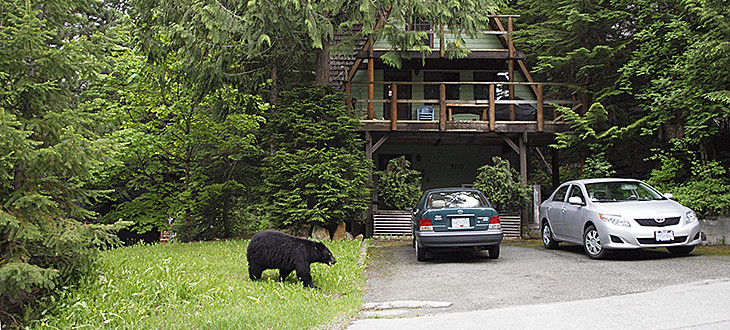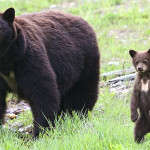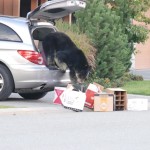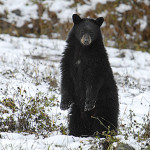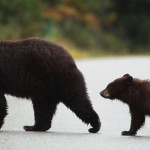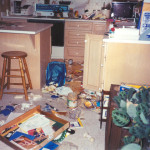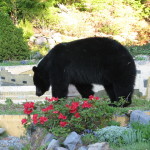Welcome to the Neigh-BEAR-hood!
Bears, especially black bears, are showing up in neighbourhoods throughout North America, often in areas where they haven’t been seen for decades.
To avoid being face-to-snout with a bruin on your own property, it’s important to learn a bit of bear country etiquette.
The basic code of conduct is simple and straight forward. Never feed a bear – either intentionally or unintentionally by not being mindful of things that attract bears to your property.
Aside from mating and raising cubs, bears basically have one thing on their mind: FOOD.
The fact is: bears like human food. It is kind of like junk food for them because it’s high in carbs and protein, allowing them to put on weight faster.
They have entered homes, started kitchen fires, and torn doors off their hinges to get to garbage or other food sources on decks, in garages and in cars.
To stay safe, minimize property damage and keep bears alive, please:
- Dispose of garbage and recycling in a bear-proof manner. This one is HUGE. Do not leave garbage outside or insecurely stored around your home.
- Keep accessible doors and windows closed and locked. Bears have been known to break screen windows, climb up second or third story decks and even open sliding doors.
- Don’t use birdfeeders during bear season.
- Burn food reside off BBQ’s after each use and ensure the grease tray/can is empty and clean.
- Keep compost clean and odour free.
- Keep your vehicle clean and odour free. Food in vehicles is a target for bears. They will smash windows to get food and other smelly things like a deodorant stick or an empty coffee cup!
- When walking your dog, please keep them leashed and give grazing bears space to graze.
Click here for more details and other considerations.
If you do encounter a bear in an urban area, remain calm. Give the bear plenty of space and a clear and easy escape route. If it’s a black bear, make lots of noise to encourage him to leave; if it’s a grizzly bear, remain quiet and slowly back away. (Click here to learn how to tell the difference.) Call your local conservation/wildlife officer and report your bear sighting. Check in with the local bear aware/wise/smart group in your area to find out more about local programs. Don’t forget to remove whatever attracted the bear to your property in the first place.

